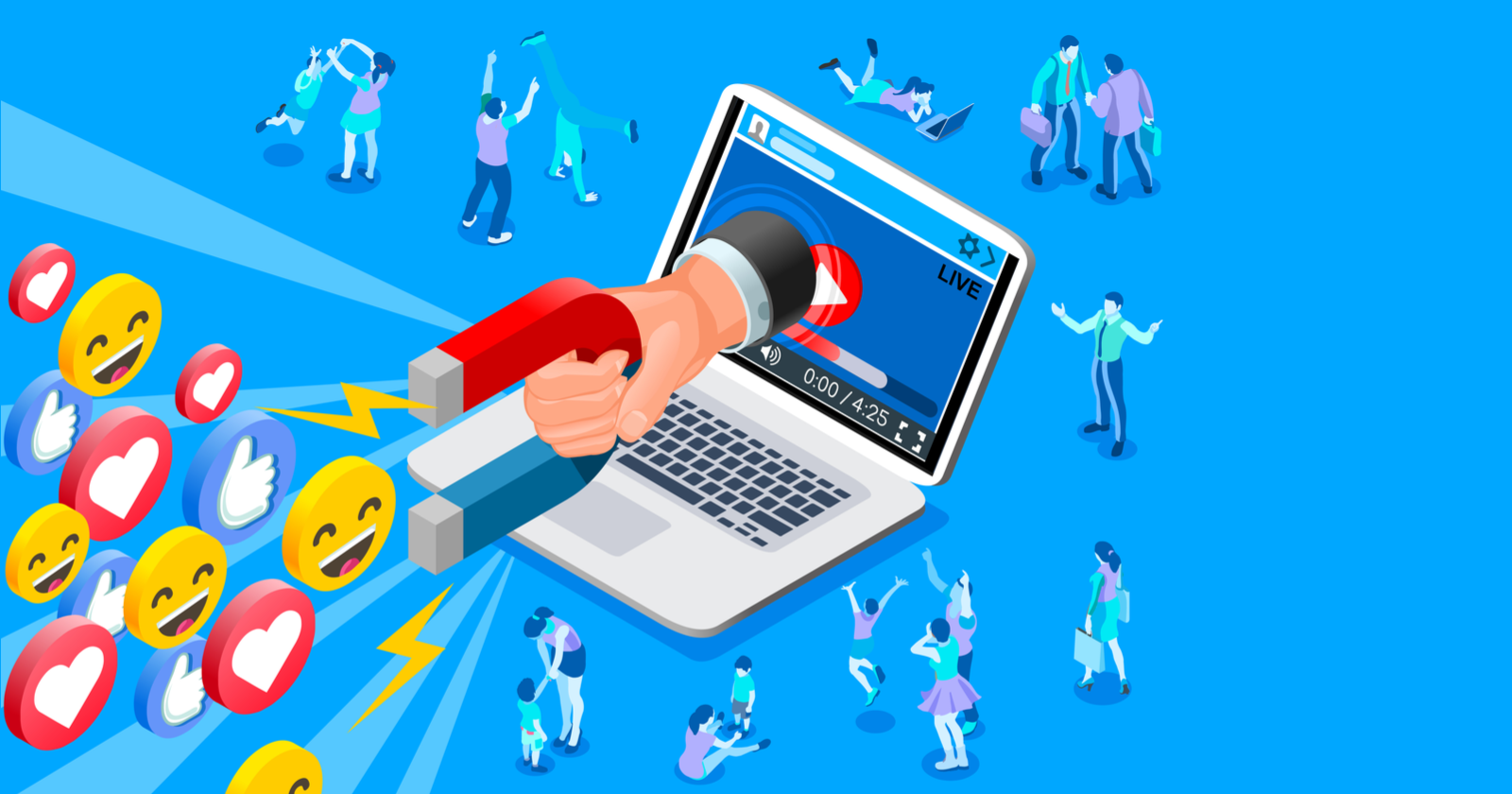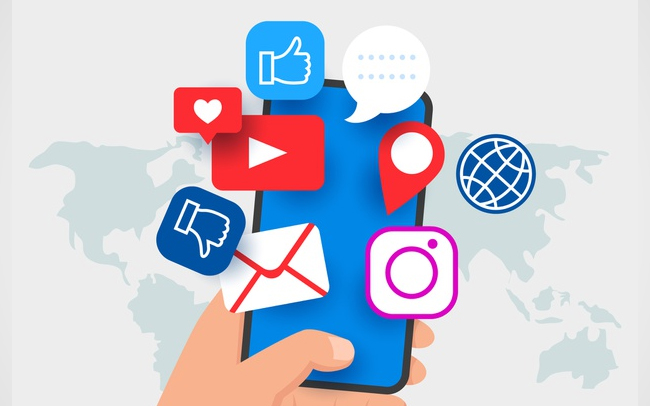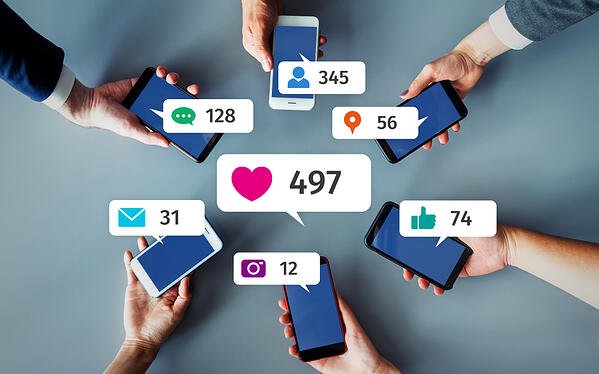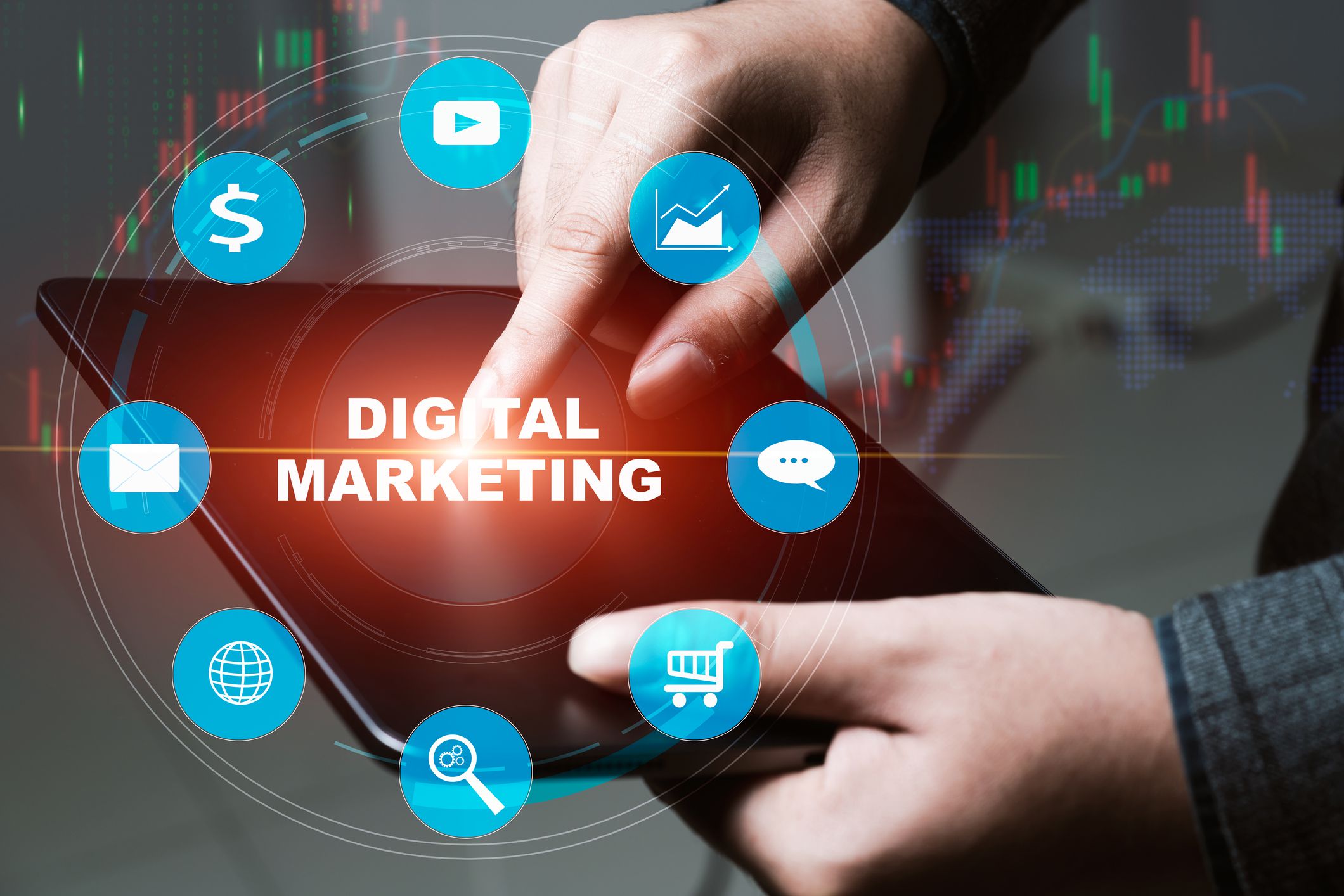Hello!
Social media is flooded with content: text, images, and videos. Machine learning has made major bounds in the past few decades, and AI now helps social media marketers sift through online content and consumer data to make more informed marketing decisions.
AI can save time and money, help optimize content, and provide analyses which help businesses better understand their audiences and market accordingly. Businesses who listen to their audiences and always have them in mind will have the greatest results. Marketers are using AI to find new ways to appeal to their audiences and produce content which attracts attention, pleases consumers, and increases engagement.
Content Production, Optimization, and Deployment
Content is a pivotal part of marketing, but original content production takes a long time. AI can help marketers during the content creation process. Technology can pick up on grammar and spelling mistakes, and some AI can even recommend a tone for directing messages at target audiences.
 Original media also comes from machine learning technologies. Generative adversarial networks (GANs) are known for creating realistic-looking fake images.
Original media also comes from machine learning technologies. Generative adversarial networks (GANs) are known for creating realistic-looking fake images.
GANs contain a generator network and a discriminator network which play off of each other to both detect and create fake images. Voices can also be generated using these technologies.
Marketers can use other AI tools to generate names with text generation software. These names could belong to potential products, campaigns, and brands, and AI often returns a mass of usable ideas. Although AI can lessen the load of content production, marketers will still need to produce some of their own content.
 In addition to social media content creation, AI can help content creators optimize and deploy content with greater results. Some machine learning software analyzes the volume of text, images, and videos and gives feedback on how to keep content balanced and interesting for audiences. Some technologies involve testing different types of content to achieve the balance, but the risk of losing customers along the way is concerning for most marketers.
In addition to social media content creation, AI can help content creators optimize and deploy content with greater results. Some machine learning software analyzes the volume of text, images, and videos and gives feedback on how to keep content balanced and interesting for audiences. Some technologies involve testing different types of content to achieve the balance, but the risk of losing customers along the way is concerning for most marketers.
The primary aim of social media marketing is to improve engagement. Marketers use AI to pinpoint top performing content and break down the most engaging elements. Machines report on specific hashtags, keywords, and even colors that appear to increase engagement. These technologies are designed to analyze competitors' pages as well.
Machines help marketers create posting calendars (with respect to audience and industry data). There are many other technologies to help in content creation, optimization, and deployment, but the aforementioned are some of the most popular.
Machine intelligence helps companies weed through data on social media platforms to better identify (and serve) consumers. Machines uncover consumer behaviors, helping marketers to present their products and services more effectively.
Text classification software helps marketers sort through vast amounts of consumer information (text- and voice-based) and classify that information according to variables like tone and sentiment. Machine learning systems help marketers review consumer's feelings about businesses, brands, and their products and services. Companies can learn a lot from this information, including how to build more meaningful relationships with existing customers.
Social monitoring and social listening are forms of AI that companies use to reflect on the potential success of a brand's products and services. Social monitoring allows marketers to see what people are saying about a brand. Social listening goes beyond this and actually tracks conversations and key phrases.
 AI can also extract information which relates to a brand and its products from trending news and gather a better idea of what audiences think. Companies use AI tools to understand what drives consumers to buy products.
AI can also extract information which relates to a brand and its products from trending news and gather a better idea of what audiences think. Companies use AI tools to understand what drives consumers to buy products.
Machine intelligence can recommend the types of content to produce. Some AI even informs marketers when relevant conversations are being had so they can participate with consumers in real time. With so much being said on social media, it's easy to neglect consumers and what they want. AI helps companies stay on task and optimize interactions by increasing a marketer's audience awareness.
Customer Service
Successful and high-performing customer support is one of the social media marketing benefits you can leverage for your business thanks to artificial intelligence. More customers means more money, but it also means more time spent serving them. Businesses are currently using AI-based customer service like chatbots to interact with consumers. These dialog systems are mostly simple, but some of the more complicated ones adapt throughout the conversation so they can answer any difficult questions. AI then alerts humans once it realizes it cannot properly cater to the customer's needs.
The growth of AI changes the customer support experience. AI bots help businesses respond to customer concerns almost immediately. Common questions and concerns can be answered effectively by AI bots. Chatbots can also differentiate serious inquiries from fraudulent ones. Although dreaded by some, bots can help cut costs, generate leads, and boost conversion rates—all while helping marketers maintain meaningful and effective communication with customers.
Recognition
Social media is overflowing with content, especially images. Machine learning technologies help marketers sort through images and analyze consumers' reactions and behaviors. Image recognition software helps marketers identify what people want so they can produce content, create products, and offer services which are appealing.
 Facial recognition software helps marketers offer products which meet an individual customer's preferences, but it is also being used (by some) to detect moods of individuals and offer products accordingly.
Facial recognition software helps marketers offer products which meet an individual customer's preferences, but it is also being used (by some) to detect moods of individuals and offer products accordingly.
User-generated content is overflowing with images and faces much like it is overflowing with brands. Computer vision is used to sift through unlabeled images and videos and identify brands and products. Marketers can then extract user insight, calculate earned media from video analysis, and build solutions for content moderation. Image, facial, and branded object recognition software give detailed insights into how to identify and market to audiences.
Customer Analysis
Marketers work to please individuals, not masses of people. Some companies use clustering and customer segmentation to analyze each consumer (based on what they do on social media) and then groups consumers together and returns visual reports.
Granular personalization helps individualize customers further, recording key notes like consumers' favorite brands. These technologies give marketers greater insight into how to best cater to each individual consumer. Visualizations help companies see market trends and customer behaviors more clearly and then take the appropriate actions for growth.
Competitor Analysis
Competition helps companies improve, and AI helps competitors do this much more quickly. Any analysis businesses can run on themselves can also be performed on competitors. Social media marketers use this data to get an idea of what works among which audiences and make the appropriate changes to their marketing strategies.
Machine learning technologies also analyze the social profiles of competitors. Data is objective, but gathering data is time consuming. If done by humans, these reports would take hours upon hours of exhausting work and may be overshadowed by human bias and, thus, produce less accurate results. AI helps to eliminate these errors and makes it easier for marketers to update their social media marketing strategies.
Digital Marketing
Effective content marketing takes time to get right. AI can help shorten the amount of time spent on marketing by analyzing social media activity within a niche. Bots can forecast the success of social media posts based off the success of similar posts across social networks. Automation also helps companies with tasks like sorting through email.
 Machines can learn to pinpoint which content deserves the most social media attention. Some content will perform better, and computer systems help marketers identify that content. The most effective posts deserve more marketing spend, and machine intelligence helps businesses identify the most promising posts. There is simply too much going on for marketers to (manually) keep up.
Machines can learn to pinpoint which content deserves the most social media attention. Some content will perform better, and computer systems help marketers identify that content. The most effective posts deserve more marketing spend, and machine intelligence helps businesses identify the most promising posts. There is simply too much going on for marketers to (manually) keep up.
AI can create regression models which forecast sales and the cost of marketing campaigns. Machines improve timeliness of posts and make campaigns more relevant for audiences. AI platforms help marketers buy media by restricting the need for human involvement to a minimum. Businesses may even consider using programmatic buying technologies to automate the ad buying process, and machine learning has improved enough help minimize ad fraud (but marketers should still take care in automating any expense).
Influencer Marketing
 Large and small companies alike benefit from influencer marketing. Marketers increase the ROI of their products and services with the help of the right social media influencers. Finding the right influencer is a challenge, and marketers often struggle choosing the influencer who will bring marketers the best results.
Large and small companies alike benefit from influencer marketing. Marketers increase the ROI of their products and services with the help of the right social media influencers. Finding the right influencer is a challenge, and marketers often struggle choosing the influencer who will bring marketers the best results.
AI analyzes large amounts of data, so companies can choose influencers who share company vision, goals, and objectives. Machine intelligence also analyzes the proper incentive to offer influencers for their time and effort. No matter the influencer, these relationships should always be mutually beneficial.
Also read:
- Britain’s Most Tattooed Man Blocked from Music and Porn Due to New Age Verification Laws
- 6 Steps To Develop A Disruptive Mindset And Become an Industry Leader
- Finding Your Perfect Hairstyle with AI: See Yourself with Any Hair Length or Style
Final Thoughts About Using AI To Improve Your Social Media Performance
Machines have learned to sort through vast amounts of data and create visual reports to help companies improve. Social media marketers should be aware of technologies that are available to them (like analytics, email marketing, and workflow automation tools).
The world of technology is changing rapidly, and how people use AI will continue changing. Businesses should avoid relying too heavily on AI and machine learning—errors can occur and fraudulent activities persist—but ignoring what AI offers businesses is ill-advised. Marketers should take their time choosing the appropriate technologies and remember to test their results to find the strategy that works for them.
Thank you!
Subscribe to our newsletter! Join us on social networks!
See you!






